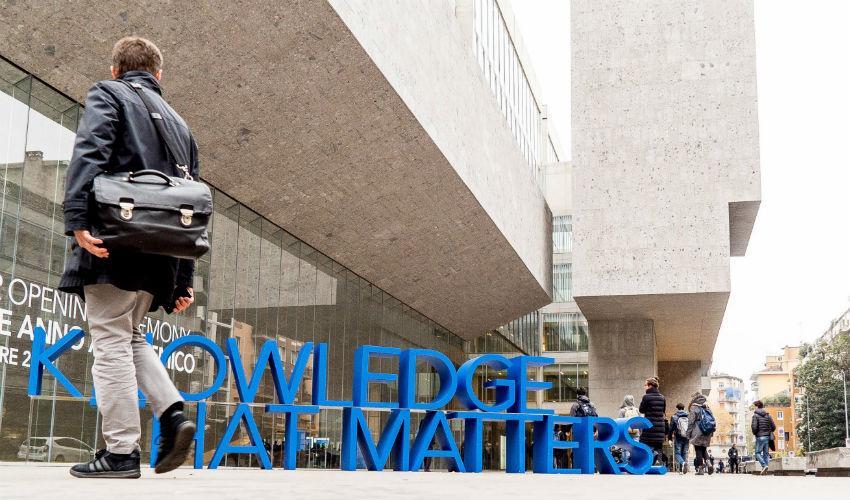
Back to the Future for Family Capitalism, Which Today Counts More than Ten Years Ago
THE TENTH EDITION OF THE AUB OBSERVATORY COMPARES TODAY'S ITALIAN FAMILY BUSINESSES WITH THOSE SURVEYED TEN YEARS AGO, RECORDING MORE BUSINESSES, MORE EMPLOYEES, AND A RECOVERY OF PROFITABILITYThe importance of family capitalism in the Italian economy has grown over time in terms of companies with a turnover of more than 50 million euros, employment and incidence on total turnover. Furthermore, the financial results of family businesses have returned to pre-crisis levels. This is highlighted by the tenth edition of the AUB Observatory (AIDAF-UniCredit-Università Bocconi, that compares the state of family capitalism recorded ten years ago and today. «However, the surprising dynamism of family businesses deserves further consideration: one half of the businesses have changed in the last decade and the leaders are progressively ageing», says Guido Corbetta, holder of the AIDAF-EY Chair of family business strategy in memory of Alberto Falck and curator of the report along with Fabio Quarato and Alessandro Minichilli.
Family businesses with a turnover of more than 50 million euro were 4,251 ten years ago and are 4,597 (+8.1%) today, employed 1,471,674 people at the time and employ 1,885,771 now, and their incidence on the total turnover of businesses of their size has gone from 32.5% to 37.5%, according to data provided by the Chamber of Commerce of Milan Monza Brianza Lodi and processed by the Observatory, which analyzes the financial statements of all Italian family businesses and not just a sample.
If the growth rate of revenues, in ten years, has decreased (from 9.3% to 6.5%), it remains higher than that of non-family businesses (dropped from 7.9% to 5.5% in the same period). Moreover, pre-crisis profitability has been recovered and the solidity of family businesses has even increased. ROI rose from 9.5% to 9.6% and ROE from 9.6% to 13.6%, while the ratio of net financial position to EBITDA fell from 5.5 to 5 and the debt ratio from 6.5 to 5.
Of the 4,597 companies surveyed this year, only 2,445 (53%) were part of the same size class ten years ago. Of the 1,806 no longer present, 742 (17.4% of the 2008 population) entered into liquidation or bankruptcy procedures, 631 (14.8%) were the subject of mergers or acquisitions, 254 (6%) fell below the threshold of 50 million euros, while the others have changed ownership. The sectors that have recorded the greatest growth in family businesses are food and drink; mechanical; chemical-pharmaceutical. The provinces that have recorded the strongest growth in the number of family businesses are Monza-Brianza (+62), Milan (+39), Vicenza (+32), Treviso and Naples (+22 for both). The biggest decline is in Modena (-21), Turin (-19), Padua (-12), Trento (-9), Verbano-Cusio-Ossola, Prato and Alessandria (-8 for each of the three provinces).
Finally, there is a progressive ageing of the leaders of family businesses. In the ten years considered, the leaders with less than 50 years of age have decreased from 26.9% to 20.7%, while those over 70 have increased from 17% to 25.5%.
«The report», says Jean Pierre Mustier, CEO of UniCredit, «shows an expansion both at a territorial and industrial level: in particular the development of new urban hubs and the identification of new sectors in which to invest. 85% of Italian small and medium-sized enterprises are family businesses. In Europe, they represent the backbone of the European economy, 60% of added value and 70% of employment. They adapt more easily to market changes. They have more creativity and flexibility».
«Family businesses», says Carlo Edoardo Valli, vice president of the Chamber of Commerce of Milan Monza Brianza Lodi, «are at the base of our economic system, a living example of the Italian and Milanese way of doing business in the world. Companies that have withstood the crisis and that, especially in our territory, constitute an example of capacity for innovation and international openness, but that now find themselves facing the difficult challenge of generational turnover. The Chamber of Commerce is collaborating with Bocconi University in this research to monitor a phenomenon so characteristic of our territory».
«The AUB Observatory helps us understand the importance of rigorous governance so that family businesses can successfully project themselves into the future, to achieve a clear vision that values quality and innovation, based on solid and shared values», says Elena Zambon, President of AIDAF.
"The stock exchange can play an important role in accompanying family businesses in the transition from one generation to the next, in attracting managerial talent and accelerating growth», says Barbara Lunghi, Head of Primary Markets Italy at Borsa Italiana, the Italian stock exchange. «Family businesses continue to represent 2/3 of the main list, combining the presence of family shareholders and domestic and international investors».
The AUB Observatory is carried out in collaboration with UniCredit, EY, Fondazione Angelini, Borsa Italiana and the Chamber of Commerce of Milan Monza Brianza Lodi.
by Fabio Todesco
